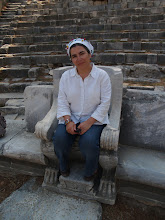On Ethics and Freedom.
This is a video of a conference presented by French philosopher Alain Badiou at Princeton. The conference was conceived as a dialogue with US scholar Cornel West and his thought.
On Ethics:
There are three major forms of Ethics; theological (ehtics of submission to the law), natural (ehtics of sensibility anchored in the concept of victimhood), and formal (Kantian. What is important in Kantian Ethics or the formal ethics is the form of action and the form is the subjective intention of action. If we act taking in consideration our interest, we are wrong and if we act taking in consideration our duty, we are right. This is the ehtics of a purely subjective liberty).
None of these ethics, according to Badiou who cites the example of september eleven, answers the question of the ethics that permit us to reach to the real world, the ethics of the real world and the real people.
Because there exist great differences in human actions in concrete situations. Badiou thinks that there is no general abstract law for ethics determining what is good and evil. 'Neither law, nor pity, nor pure intention can be foundation for ethics', he affirms.
The difficulty is to determine a general orientation for action. We always have to find in the situation itself the new rule for action. He advances the idea of an ehtics for singularity, not singularity of persons, but singularity of situations. This kind of ethics require from us to believe in the real world, and to believe in the world , according to Deleuze, is to believe in the concrete lives of people.
On Freedom:
'Freedom is always a production, and not an expression, in the context of an affirmative and intimate struggle against the desire of an harmony between personal and intimate orientation and social expression'.
'For freedom we are always to make a choice, the real choice is always a choice also against ourselves and not the direct and spontaneous expression of something intimate.
'To be free is to participate to the process of a Truth, to be incorporated to the Truth body, to be able to do something which is impossible, to be free is our experience of something impossible'.
Comments on the sciences of the mind and their public understanding. The absence of commas in this title is a statement about the Mind.
About Me
Blog Archive
My Links
- Alain Badiou
- Bioethics resources on the web
- Bioethics.net
- Brainethics
- Charles Taylor
- Darwin Online
- Digital Anatomist project
- Lynn Margulis/about
- Mario Bunge
- Neurodisorder
- Neurophilosophy
- Neuroscience and eLearning
- Online biology dictionary
- Paul Ricoeur
- Society for Neuroscience
- Stephen Jay Gould/Unofficial
- The Brain from Top to Bottom
- The Brain Mind and Society program at Caltech
- The Cognitive Science section of the Stanford Encyclopedia of Philosophy
- The Online Ethics Center for Engineering and Science
Subscribe To





No comments:
Post a Comment